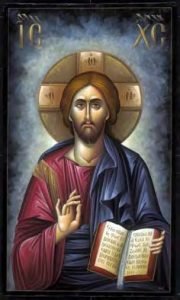 While I realize that this might been a challenging article, I continue it because it is my hope and prayer that the people who read my Bulletin might be as well-informed as possible. I also truly believe that my readers can gain benefit from such information.
While I realize that this might been a challenging article, I continue it because it is my hope and prayer that the people who read my Bulletin might be as well-informed as possible. I also truly believe that my readers can gain benefit from such information.
There is truly value in the early lists of books that the Fathers quote. If patristic citations tell us nothing about canonicity in the strict sense, but only that a book was thought worthy of respect, the lists are more helpful. The formation of a list implies acceptance of a book, so listed as a particular type of book , and, since the lists of New Testament (NT) books are at time coupled with lists of Old Testament (OT) books, acceptance as Scripture. We must always remember that the early Christians help the OT books as sacred and inspired by God. We must also remember that the OT was translated into Greek, the language of the NT.
Past discussions of the Canon have sometimes neglected to consider that a list may represent no more than the author’s own judgment or the custom of his local church. The fact that lists do not agree from area to area weakens their witness to universal Church practice.
What is thought to be our earliest list, the Muratorian Fragment, considered representative of Roman usage in the late 2nd century, does not include 1-2 Peter, James and one Johannine epistle; but it does include Wisdom (and OT book considered as a NT book) and the Apocalypse of Peter, about which, it admits, there was certain controversy. Some authors have questioned the usual dating of this fragment and suggested that it belongs in the 4th century. This would mean that an incomplete canon perdured at Rome
even later than formerly thought. Origen’s list in the 3rd century raises doubt about 2 Peter and two epistles attributed to John. In the early 4th century, we have two Eastern canons from Eusebius and Cyril of Jerusalem and two slightly later Latin canons and these do not agree.
Eusebius explicitly distinguishes between recognized , disputed and spurious books. He lists epistles by James and Jude as disputed yet states that they have been regularly used in many churches, thereby testifying that his list does not represent universal usage.
